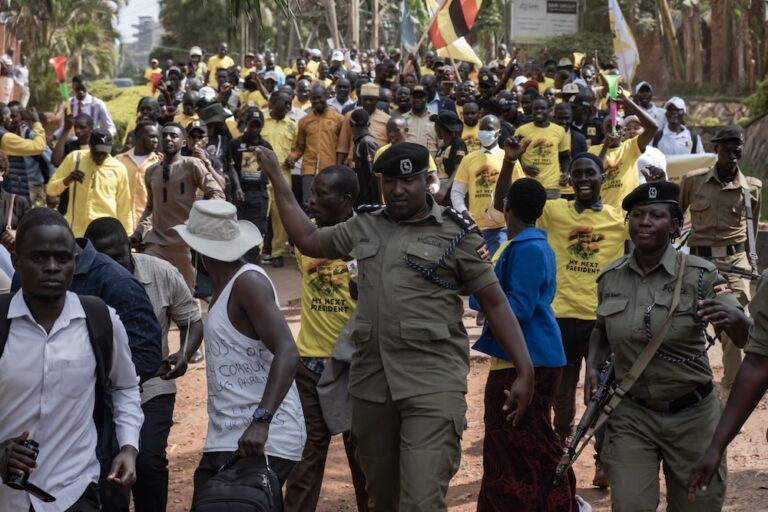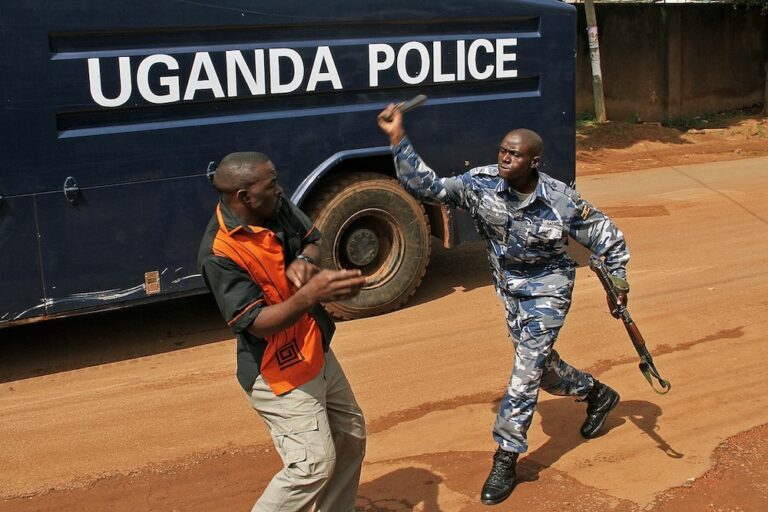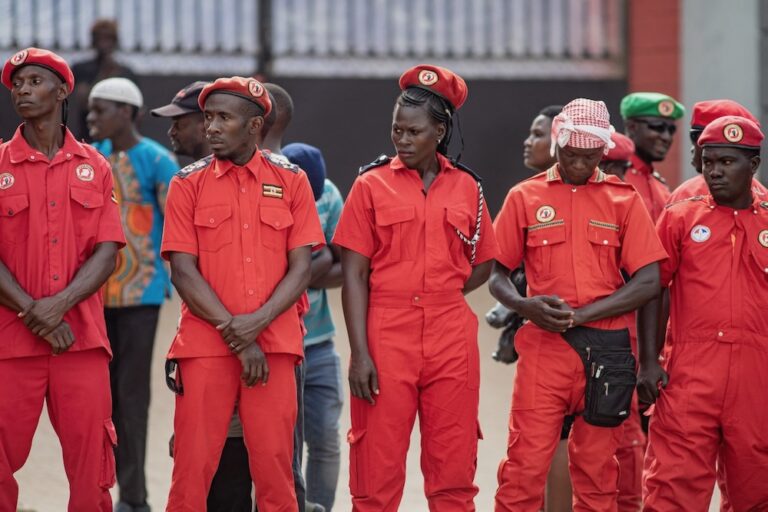The violence was the latest round in a campaign to gag the media that has been waged ever since Museveni's election victory and the start of "walk-to-work" demonstrations.
UPDATE: Journalist compensated, implicated officers get off scot-free (HRNJ-Uganda, 2 July 2012)
(RSF/IFEX) – At least 10 Ugandan and foreign journalists were physically attacked by soldiers on 12 May 2011 while covering opposition leader Kizza Besigye’s return to Uganda from Kenya, where he was treated for injuries received when the security forces used force to disperse an opposition demonstration in Kampala in April.
The violence, which took place as President Yoweri Museveni was being sworn in for a fourth term, was the latest round in a campaign to gag the media that has been waged ever since Museveni’s election victory in February and the start of “walk-to-work” demonstrations in April.
“We condemn violence against journalists who are just doing their job as reporters,” Reporters Without Borders said. “The opposition leader’s return to Kampala was a major political event that had to be covered for the Ugandan public. The security forces should not confuse an event’s participants with the journalists who are just observing it. The election campaign in late 2010 and early 2011 was already fraught for reporters. The situation is now worse, with demonstrations that are dangerous to cover.”
The press freedom organisation added: “We urge the authorities to see reason. President Museveni’s government must put a stop to these press freedom violations. We also call on the international community to take a firmer line with the government and insist that it guarantee the safety of journalists and respect diversity of opinion.”
On 12 May, a group of soldiers aboard a vehicle with the licence number H4DF 632 assaulted journalists covering Besigye’s arrival, accusing them of photographing soldiers beating up civilians. Several reporters, including Stephen Otage of the “Daily Monitor”, had their equipment confiscated. Photos taken by foreign journalists were immediately deleted by the security forces.
One of the victims told Reporters Without Borders that most of the journalists who were attacked by police or soldiers had shown their press ID. That did not stop them from being beaten.
Ten journalists were injured. They were Mercy Nalugo (“Daily Monitor”), Barbra Among (Vision Group), Rogers Kibirige (Vision Group), Kigongo Ssebalamu (Vision Group), Robert Mutebi (Vision Group), Michael Kakumirizi (“Red Pepper”), Peacock Kaweesa (“Red Pepper”), Eddie Ssejjoba (Vision Group), Raymond Ayebare (“The Razor”) and Simon Njala Kaggwa (Akaboozi Radio).
Ssejjoba and Mutebi were treated in a private hospital in Kampala. Ayebare was evacuated in an ambulance, bleeding profusely from a blow to the head.
The violence came just two days after President Museveni lambasted some news media at a news conference, accusing them of supporting the demonstrations against food and gasoline price hikes that have been taking place since mid-April.
Journalists who Reporters Without Borders prefers not to identify have been forced to go into hiding in the past month after receiving death threats.
William Ntege, a journalist with Wavah Broadcasting Service (WBS), was briefly detained while covering an opposition parliamentarian’s arrest on 2 May. Christine Nabatanzi of Radio Simba was hit in the leg by a rubber bullet fired by riot police while covering an opposition Democratic Party demonstration the same day.


